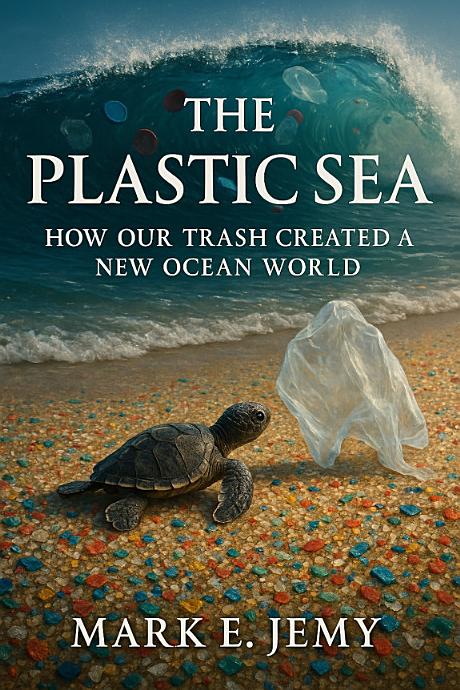The Plastic Sea: How Our Trash Created a New Ocean World: When Waste Becomes Habitat
The Plastic Sea: Understanding Our Impact on Marine Ecosystems
The ocean, once a vast and untouched expanse, is now becoming a repository for human waste. 'The Plastic Sea: How Our Trash Created a New Ocean World' delves into the profound ways in which our trash has not only polluted but also reshaped marine environments. This book offers an insightful examination of how discarded plastics and other debris have formed new, albeit unintended, habitats in the ocean.
Exploring the New Ocean World
As plastics break down into microplastics, they integrate into marine ecosystems, affecting everything from the smallest plankton to the largest marine mammals. This transformation has significant implications for biodiversity, ocean currents, and even human health. 'The Plastic Sea' provides a comprehensive analysis of these changes, offering a new perspective on the long-term effects of pollution.
The Unseen Consequences of Pollution
The book highlights the complex relationship between human activity and the natural world. It explores how our consumption patterns contribute to an ever-growing problem, urging readers to consider more sustainable practices. Through detailed research and compelling narratives, the book paints a picture of an ocean world that is both familiar and alien, shaped by the very waste we discard.
What Can Be Done?
While the book presents a sobering view of our impact, it also emphasizes the potential for change. By understanding the scope of the problem, individuals and communities can take action to reduce waste and protect marine environments. 'The Plastic Sea' serves as both a warning and a call to action, encouraging readers to be mindful of their ecological footprint.
Frequently Asked Questions
- How does plastic pollution affect marine life?
- What are microplastics and why are they concerning?
- How can individuals contribute to reducing ocean pollution?
This work examines the invisible frameworks behind human reasoning — how emotion, perception, and memory form a complex network of ideas that shape our daily behavior. By drawing on modern psychology, the book reveals why we cling to certain patterns of thought and how awareness can shift them.
The result is not just a collection of ideas, but a living dialogue that invites participation, self-inquiry, and perspective.
Ultimately, this book leaves the reader with a sense of clarity and curiosity — a reminder that understanding begins when we dare to question what we think we already know.

